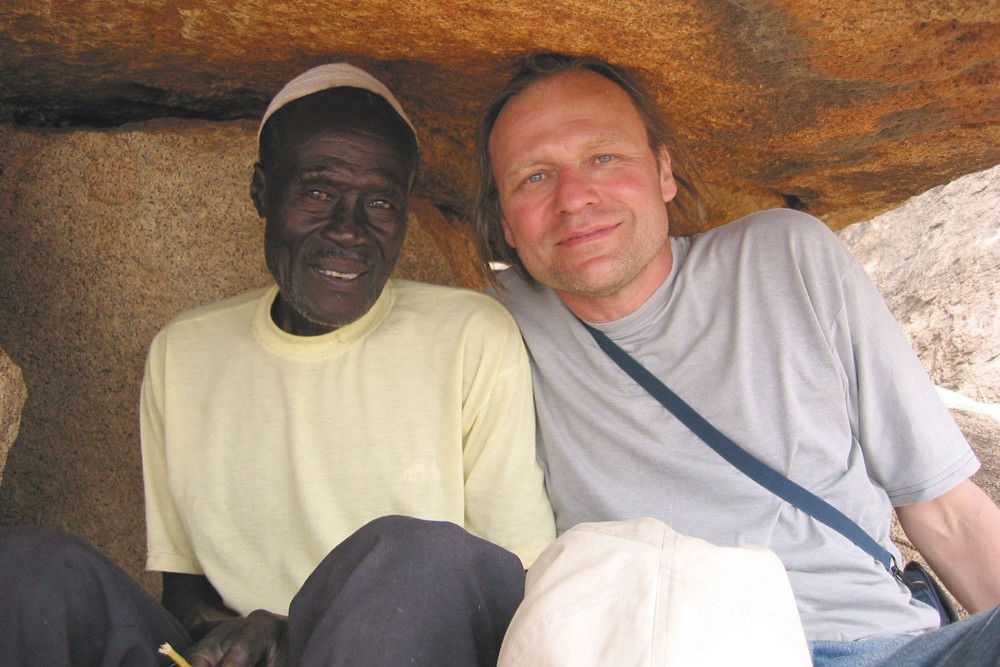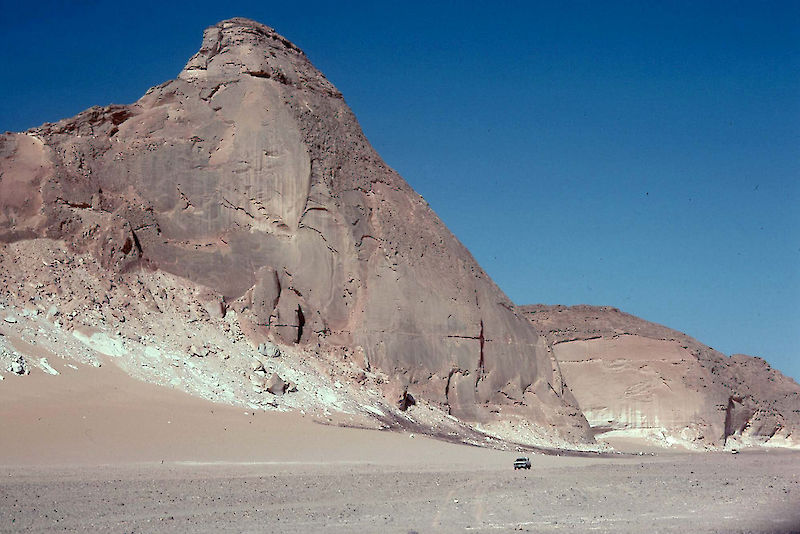Researching amongst war and crisis

When Professor Richard Rottenburg travelled to Sudan on research for his first lengthy stay in 1978, he knew that the following years would influence his scientific career. However he couldn’t have guessed how. Back then the African country was experiencing a relatively short period of peace which allowed his stay to be trouble-free. Just out of university, the ethnologist went to live for three years in a Sudanese village in the Nuba mountains to carry out field studies. He established contact with native inhabitants, lived amongst them and, you could almost say, became one of them. They accepted him like a relative, or if nothing else, a good friend.
The strong contacts from that time still remain intact, even though Rottenburg was unable to travel to Sudan for a long time. Between 1985 and 2003 war prevailed and it was much too dangerous to carry out research there.
“Most of my friends in Sudan have become refugees. A lot of them in the third-generation don’t know what peace actually means,” the ethnologist says. Though he never felt in acute danger during his many research trips, this was down to the fact that he had a stable local network of information, spoke the language well, knew a lot about the country and could always leave when things got too dangerous. “Watching how my close friends were helplessly exposed to the war is an experience I would have loved to not have had,” Rottenburg says, who has been regularly visiting Sudan since 2003.
As an ethnologist he depends on field work, in other words, part of his work is to have close contact with the people he is researching. Contact which also protects him. “I know precisely who I can get safe information from,” says Rottenburg. Being well-informed is a top priority. That’s the only way of knowing what could happen next. “There’s no rule of thumb,” Rottenburg believes and admits: “In an unsafe region it is generally difficult to clearly distinguish between crisis and non-crisis.”
Again and again he has had to accept that scientific projects that have received funding and approval have had to be interrupted. Namely, whenever the political situation demands it. And in recent times this has happened more and more frequently. In 2012 Professor Rottenburg had to move one of his own PhD students to another South Sudanese region because he kept on coming under fire during his fieldwork. And Rottenburg himself has had to avoid the country since last June after fighting and bombing flared up.
In general he feels a dilemma about working in a country in which violence and lawlessness reign. “You feel powerless when you can leave the country but the people who had taken you in have to be left behind in an extremely difficult situation.”
Geologists in a mine belt
But it can be difficult for scientists even in countries where war doesn’t abound: Egypt, Nigeria, South Africa and India are just a few places where Professor Peter Wycisk has worked. Not all of these countries are considered hot spots. Nevertheless it can be dangerous to move around there. “It’s not always easy to correctly gauge the local situation,” says the hydro-geologist whose last visit to Egypt was shortly before the start of the Egyptian revolution last year. And besides: Violence is a phenomenon that is found all over the world. “From a global perspective violence-free zones are, if anything, the exception,” Richard Rottenburg adds, who, incidentally, carries out research on aspects of human safety.
Just like the ethnologist, Wycisk has to get up close and personal during his fieldwork. Unlike many scholars, he doesn’t do his research in a shielded institute, but in the actual country. As a geologist, his first time in Egypt was at the beginning of 1981 as part of an expedition, only three weeks after the then president Assad had been shot to death. Back then, the country wasn’t specifically dominated by war, however in the southern regions there was constant unrest as a result of attacks by armed groups.
“Fifteen years as part of expeditions in this region have left their mark on me,” says Wycisk. He has always conducted himself with people and authorities in a way that minimizes conflict. And he has learned to look closely at things in order to better assess situations. As a member of such an expedition, integration and subordination are a basic requirement. In addition, as a leader of a group you have to cope well under pressure, come back with as much usable scientific data from each team member as possible and, at the same time – and above all – bring home a healthy team. Because danger lurks even when the region appears to be safe. After all it is an inherent part of geological excursions to go off the beaten track. “After driving a long time through the open desert in an off-road convoy, you cannot allow for any mistakes,” explains Wycisk. One time a tiny, but crucial part of the cooking equipment was forgotten which meant that two people had to spend an entire day procuring it from the nearest city.
Even when being painstakingly careful something unpredictable can always happen as the result of the legacy of former or even smouldering conflicts. In the 1990s, Wycisk and his convoy got into a mine belt along the border to Libya which the Egyptian army unexpectedly had laid in a dried riverbed. “A rear wheel of one of our escort vehicles exploded. The expedition leader was able to steer our pickup truck backwards along our exact tracks to get us out of the danger zone. That was precision work which led us at times only a few centimetres past live mines,” Wycisk recalls. “We were just lucky that nothing else happened.”
For anyone who envisions adventure in the wilds when hearing such stories, it’s a far cry from it: “Regional research has always fascinated me. But it’s not about adventure,” he says. “It’s about solving a scientific problem and developing an understanding of regional coherencies.”

